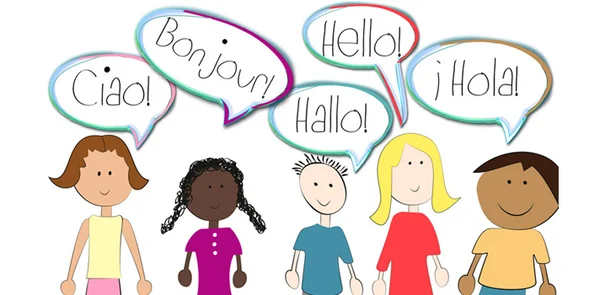
Social and linguistic advantages of bilingual children
As is normal, parents worry about their children, thinking if what they are studying now as a minor, can benefit or harm them when they are older, if it affects their friendly relationships with other children and also relatives. In a word, they care whether their children are on the right track. And one of the aspects that affect them the most is knowing for sure if their bilingualism will serve them positively when they grow up.
Let's talk about your child's bilingualism, relying on multiple experiences and we can already affirm that bilingualism not only helps children to be good polyglots, but at the same time it sharpens their brain, in such a way that it can be affirmed that bilingual education is brain insurance to reach old age with a healthy mind.
Research on bilingualism in children
In all the studies carried out, it has been shown that bilingual children outperform monolingual children, because:
- They form better understanding of the ins and outs of language.
- Their thinking is more creative while they understand the more complicated or subtle meaning of words, and one of their greatest virtues is that they know how to use synonyms better, thanks to the comparison of the two grammars.
- Sometimes, parents create a non-existent concern such as, that if the command of two languages is an obstacle to having mastery over both. Instead, practice tells us that a bilingual person can achieve, because of his self- confidence, read at a higher level than a child who only speaks one language.
- It has also been proven that bilingualism makes children more intelligent, since their brains have been trained, while studying a new language, to perform functions that a monolingual cannot. How it is to develop simultaneous connections.
What is bilingualism?
Based on the experiences given, true bilingualism cannot be taught; It must be experienced to have a “what is it for” in their practice, which is often forgotten, or is hidden for the prevailing reason, which considers that the study of a language is not a means of instruction to achieve something, as it is communicate fluently, get a job etc. rather, it is the subject of instruction, that is, knowing the language without further ado.
At what age should a child begin the study of a language?
For a long time it was believed that there was a critical period for learning a new language and it was said that a three or four-year-old had better command than a 14-year-old. The experiences, on the other hand, tell us that children can enter at any time before the age of 10 and obtain the same benefits as those who started previously.
What problems can the bilingual encounter
During the study of the second language, the child will face some problems that will disappear over time:
- You can easily make mistakes in grammar.
- Also, and this is quite normal, that in the same sentence use words from both languages.
- It is not surprising that when he begins to study his second language, the child speaks quite little for a time, sometimes months.
In all cases these anomalies are normal and disappear after a while.
The study of a new language always requires effort
Parents must assume that although young children have a natural ability to learn a language, this will not be possible without great efforts. In this direction, pediatricians routinely advise parents to speak to their children whenever possible, to read to them and even to sing to them. The point is to increase your attention to the language .
In addition, pediatricians also advise parents who do not speak the language their children are learning to read aloud to them, sing to them, etc. and speak to them in their native language. Some families decide that each parent will speak a different language to the child. But it is not necessary, because the child will be able to distinguish between the two languages even if both parents speak both.
On the other hand, if a child is brought up by a caregiver who speaks a foreign language - perhaps a Chinese or French nanny - there might be some benefits in the future if he wants to study that language. If the child grows up speaking a second language - let's say German - with his cousins and grandparents, and also attends a school that highlights the language and culture, where he also listens to music and even reads stories, books in that language and later has the opportunity by visiting a country or area where it is naturally spoken, they will develop a much greater capacity for that language.
In conclusion
According to Dr. Hoff from Florida : “A child who is learning two languages will have a more limited vocabulary in each of them than a child who is only learning one; We only have a finite number of hours a day; Either you listen to English or you listen to Spanish ”. And he goes on to say: “Children start out as bilingual babies; however, as they grow older, English overcomes Spanish, ”he said. “Those who become successful cases of bilingual adults are still much better in English than in Spanish; They did not go to school in Spanish nor do they read in Spanish, and when the breadth of their vocabulary, their grammatical comprehension or the coherence of the narrative they produce is evaluated, it turns out that they are not as competent in Spanish as in English ».